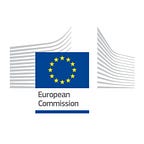#SaferTogether against COVID-19: fighting poverty and the pandemic in Haiti
When the coronavirus pandemic arrived in Haiti, it brought the country to a halt. Stores closed, tourists disappeared, and jobs vanished. Fearing for his survival and that of his son, Wisner decided to try to leave the country. He saw the danger that awaited: when the pandemic hit, not only did options for work dry up, but key elements of the country’s health system collapsed.
With the situation rapidly deteriorating, the EU and its partners like the International Organization for Migration (IOM) immediately began to act. The EU provided key funding to support the country’s emergency medical teams and to explain to people how to protect themselves from getting the virus. These actions have helped prevent Haitians from getting sick, while also avoiding a greater humanitarian disaster.
Trying to escape poverty
Haiti is the poorest country in the Western Hemisphere. People like Wisner, who live in extreme poverty, often try to leave the country, hoping to find jobs elsewhere. However, the chances of success are small, particularly since the coronavirus pandemic. Many countries have closed their borders, and jobs are scarce everywhere.
In neighbouring Dominican Republic, nearly 150,000 Haitians were stranded when the country closed its borders. Lockdown measures intended to prevent transmission of the virus left many without work, and no way to return home.
When Wisner fled, he made it to the Bahamas by boat. But he was immediately intercepted by authorities, and sent back by plane. He arrived in Haiti with no money, and no one to call for help. Through their contacts, social workers at the IOM in Haiti learned about his situation. They knew that his situation would be dire. Because of EU-funded programmes that support vulnerable people, they were able to help. They reached the airport, gave him an emergency supply of food, a small amount of money, and helped him get back to Cap Haitien, the town where he lives.
Intervening during a pandemic
In 2020, the EU activated €3 million to fight the spread of COVID-19 in Haiti. This funding, supporting EU’s partners like the IOM, plays a crucial role in limiting the devastation of the pandemic among Haiti’s most vulnerable.
In addition to helping people like Wisner this funding also directly supports Haiti’s fragile medical system. When the pandemic began, 58 out of a total 66 ambulances in the country were out of service. This money is helping restore the National Ambulance Centre to full service at a time when it is quite critical. It also supports COVID-19 awareness campaigns, promoting effective hygiene. 26 virus screening and quarantine centres have been set up along the borders, allowing about 200,000 people to be tested.
Together, these measures offer essential protection to Haitians. They help poor people with no jobs, and migrants struggling to get home or take care of themselves. They also dramatically reduce the long-term impact of the pandemic in Haiti, lessening the burden on neighbouring countries, and on the region as a whole.
